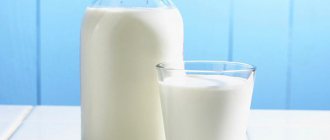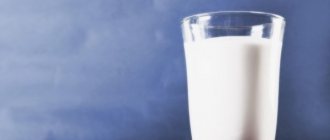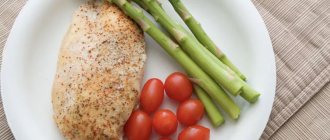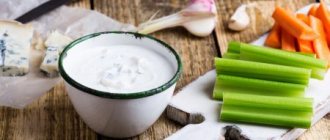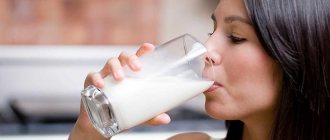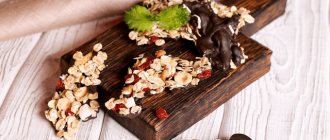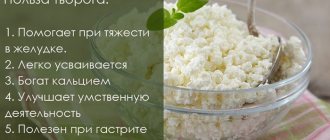The birthplace of kefir is the North Caucasus. Initially, the drink was prepared as follows: fungi were placed in wineskins and filled with fresh milk, pre-cooled. From time to time the containers were shaken. The kefir matured and fungal yeasts developed. The drink became creamy in consistency, and its taste acquired a peculiar sourness and sparklingness. Later, kefir began to be made in special tanks, using hotter milk as a raw material. Modern production technology has made the taste of the drink softer and more delicate.
Why is 1 percent kefir so useful, the calorie content of which is extremely low? Can it be consumed by people suffering from diseases of the gastrointestinal tract? What is the calorie content of fermented milk product? You will receive answers to these and other questions below.
Calorie content of low-fat kefir
There are several types of kefir. The drink can be low-fat, low-fat or full-fat. The most high-calorie product is 3.2% fat. All others are considered dietary. 1% kefir, which is extremely low in calories, contains only 1% fat. The nutritional and energy value of the 3.2% drink is about 56 kcal per 100 grams of product. This is the highest of all three types. So, a low-fat dairy product has about 30 kcal, a low-fat dairy product has about 40 kcal. The best option is considered to be a 1 percent drink. A two-hundred-gram glass of kefir contains only 80 kcal. It must be said that 100 g of this healthy product contains almost three grams of proteins and four grams of carbohydrates.
USEFUL AND NOT SO MUCH ADDITIVES IN KEFIR
Kefir 2.5% fat contains the following beneficial substances (their percentage of the daily value of 100g is indicated in parentheses).
Calorie content – 53 kcal (3.1%).
Proteins – 2.9g (3.8%), fats – 2.5g (4.5%), carbohydrates 4g (1.8%).
Ethyl alcohol – 0.03g.
Organic acids – 0.9g, water – 89g (3.9%).
Vita: B12 – 13.3%, B2 – 9.4%, B5 – 7.6%, B7 – 6.4%, B4 – 4.7%, B3 – 4%, B1 – 2.7%, B6 – 2.5%, A – 2.4%, B9 – 1.3 %, C – 0.8%, D – 0.3%.
Macroelements: calcium – 12%, phosphorus – 11.30%, potassium – 5.80%, chlorine – 4.80%, sodium – 3.80%, magnesium – 3.50%, sulfur –2.90%.
Microelements: cobalt – 8%, molybdenum – 7.10%, iodine – 6%, chromium – 4%, selenium – 3.60%, zinc – 3.30%, copper – 1.20%, iron –0.60%, fluorine – 0.50%, manganese – 0.30%.
Digestible carbohydrates: 4g.
Cholesterol – 8 mg.
Saturated fatty acids – 1.5g.
Monounsaturated fatty acids: 4.5%.
Polyunsaturated fatty acids: 1.1%.
Omega-3 – 2.6%, omega-6 – 1.7%.
The kefir grain polysaccharide kefiran has antitumor, antimicrobial and wound-healing properties, lowers blood pressure and cholesterol levels.
Fermentation changes the acid profile, the finished product contains more threonine, serine, alanine, lysine compared to milk.
Kefir also contains acids valine, isoleucine, methionine, lysine, phenylalanine and tryptophan that are beneficial to the body.
Table. Ingredients of 100 grams of low-fat kefir according to the USDA National Nutrient Database.
| Nutrient | Quantity per 100g |
| Calorie content, kcal | 43,00 |
| protein, g | 3,79 |
| fats, g | 1,02 |
| carbohydrates, g | 4,77 |
| water, g | 89,70 |
| rals | |
| Potassium, K (mg) | 164,00 |
| Calcium, Ca (mg) | 130,00 |
| Phosphorus, P (mg) | 105,00 |
| Sodium, Na (mg) | 40,00 |
| Magnesium, Mg (mg) | 12,00 |
| Zinc, Zn (mg) | 0,46 |
| Iron, Fe (mg) | 0,04 |
| Vita | |
| A, µg | 171,00 |
| B9 folic acid, mcg | 13,00 |
| D (D2 D3), µg | 1,00 |
| B12, mcg | 0,29 |
| C, mg | 0,20 |
| B3, mg | 0,15 |
| B2, mg | 0,14 |
| K, µg | 0,10 |
| B6, mg | 0,06 |
| B1, mg | 0,03 |
| E, mg | 0,02 |
| Fatty acid | |
| saturated, g | 0,66 |
| monounsaturated, g | 0,31 |
| polyunsaturated, g | 0,05 |
| cholesterol, mg | 5,00 |
Live leavened kefir is the healthiest product, but manufacturers use dry concentrate of lactic acid bacteria in order to make more profit. More than 80% of products called “Kefir” are a surrogate that cannot even be called kefir. Manufacturers have learned to make kefir products so skillfully that it is quite difficult to distinguish a natural, high-quality product.
Additive “bio” means bifidobacteria, the action of which is aimed at normalizing the intestinal microflora, reducing the activity of putrefactive bacteria. With their help, dysbacteriosis is treated. Bifidobacteria deficiency weakens the immune system.
The buzzword on labels is probiotics, which means the presence of beneficial organisms:
- Bifidobacteria
- Lactobacillus
- Some varieties of yeast
But if you understand the real essence of kefir, then it is the fermented milk fermentation that creates all these types of bacteria in it. Our grandmothers did not know about any probiotics, lactobacilli and bifidobacteria. At the same time, they knew that kefir has healing and beneficial properties for disorders in the intestinal microflora.
That is, the natural drink itself already has all these components. And the names “Biokefir” and “Kefir with probiotics” written on the labels mean that either this is a marketing ploy by the manufacturer, or this is a kefir product, and not real kefir.
- A good product has a shelf life of no more than 7-10 days.
- Its composition should indicate that it is prepared with the addition of kefir grains.
- The number of lactic acid bacteria is indicated on the packaging.
- Do not buy kefir products that have the word “kefir”, KEFIR, “BIO-KEFIR” and the like in their names. All drinks made using a different technology cannot be called kefir.
Kefir is a dietary healing product for both children and adults. It has a beneficial effect on our body.
A randomized, double-blind, placebo-controlled clinical trial showed that kefir reduced fasting blood glucose in diabetic patients compared to regular fermented milk products (yogurt, etc.). Total cholesterol levels also decrease, but the cholesterol reduction is not statistically significant. These results indicate that kefir may be useful in nutritional therapy for diabetic patients.
Reference to articles:
- www.ncbi.nlm.nih.gov/pmc/articles/PMC4401881/
Some kefir probiotics protect against infections. For example: lactobacillus kefiri. Research shows that this probiotic can inhibit the growth of various harmful bacteria, including Salmonella, Helicobacter pylori, and E. coli. After all, Helicobacter pylori causes stomach ulcers, gastritis, and can also cause stomach cancer. This means that kefir is very important for patients with gastritis and stomach ulcers.
Reference to articles:
- www.ncbi.nlm.nih.gov/pmc/articles/PMC4052788/
- www.ncbi.nlm.nih.gov/pmc/articles/PMC4273153/
Kefiran (polysaccharide) of their kefir also has bactericidal properties for healing wounds and also helps prevent constipation.
Reference to articles:
- https://en.wikipedia.org/wiki/Kefiran
- www.ncbi.nlm.nih.gov/pubmed/15848295
- www.ncbi.nlm.nih.gov/pubmed/15630283
Research shows that disruption of the intestinal flora is the source of numerous diseases: cardiovascular disease, cancer, neurodegenerative diseases (senile dementia, etc.), kidney disease, mental disorders and obesity. (An example of the effect of intestinal flora on diseases of the heart and blood vessels can be read in the article “About carnitine in nutrition.”)
Reference to articles:
- www.ncbi.nlm.nih.gov/pubmed/24365095
- https://physrev.physiology.org/content/90/3/859.short
And here are studies showing how disruption of the intestinal flora can cause diseases: obesity, type 2 diabetes, heart disease, colorectal cancer, Alzheimer's disease, depression and others.
Kefir is an excellent source of calcium, vitamin D and vitamin K2. VitaK2 plays an important role in the prevention and treatment of bone osteoporosis. And vitamin K2 supplements in studies reduced the risk of fractures by 81%
Composition of the product
All dairy products are healthy, especially fermented milk products. They must be eaten every day. Kefir contains a huge amount of vitamins B, A, C, E, PP, beta-carotene and folates.
In addition, the drink is saturated with mineral elements, organic acids and other useful elements, among which calcium is especially prominent. After all, a liter of kefir contains the daily requirement of this element. The low calorie content (kefir 1%), the chemical composition and nutritional value of the product make it indispensable for humans.
The benefits of fermented milk drink
As was already said at the beginning, now this fermented milk drink is made by fermenting milk with a yeast based on fungi. The main value of kefir lies in its special protein, the advantage of which is that it is absorbed by the human body very quickly. The drink helps improve the functioning of the digestive system, while it practically does not increase the total calorie content of the daily diet. Fermented milk product has a beneficial effect on the metabolic process.
People who are allergic to milk should not avoid drinking kefir, since in this particular case the proteins of this drink are perfectly absorbed by the body and do not cause any allergic reactions.
If you begin to include this product in your diet, your immune system and nervous system will be strengthened, cholesterol levels will decrease, the functioning of your liver, kidneys and gastrointestinal tract will be stabilized, and toxins will be eliminated from your body. Low-fat kefir 1% (calorie content, beneficial properties, its benefits are described in detail by experts) is recommended to be consumed frequently. Of course, you shouldn’t abuse it either.
Beneficial and healing properties for the body
Kefir of different fat contents has beneficial and healing properties for the female and male body. The drink is useful to drink both in the morning as a complement to the main dish, for example, buckwheat or oatmeal, for quick saturation, and at night to improve digestion and sleep.
Drinking 1-2 glasses of kefir every day has a healing effect on human health, namely:
- The functioning of the gastrointestinal tract improves. Thanks to the probiotics included in the drink, you can cure indigestion, eliminate constipation (thanks to the laxative properties of kefir) and restore normal digestive function after taking a course of antibiotics.
- Symptoms of diseases such as ulcerative colitis, irritable bowel syndrome and Crohn's disease are reduced. In addition, the drink can be drunk to prevent stomach and duodenal ulcers.
- Kefir is a preventative against infections such as Helicobacter, E. coli, and salmonella.
- The risk of developing osteoporosis is reduced, bones are strengthened.
- The risk of malignant formations and the appearance of cancer cells is reduced.
- The symptoms of allergies and asthma are reduced.
- The intestines and liver are cleansed of toxins, waste, and salts.
- The weight loss process accelerates.
- Swelling decreases. Excess fluid is removed from the body due to the diuretic properties of the drink.
- The functioning of the cardiovascular system improves. Blood pressure is normalized and the level of bad cholesterol in the blood is reduced, which reduces the likelihood of developing thrombosis.
Kefir can be drunk by people with lactose intolerance. The drink is useful for athletes after physical activity, as it helps to quickly restore strength, satisfy hunger and fill the body with energy. In addition, the protein contained in the composition helps build muscle mass.
Note: after an exhausting physical workout, it is necessary to saturate the body not only with proteins, but also with carbohydrates. To do this, athletes are recommended to make a protein shake from kefir with the addition of banana.
Women use kefir for cosmetic purposes. It is used to make nourishing masks for the face and hair roots. The drink relieves skin redness and relieves pain from sunburn.
Low-fat kefir has the same health benefits as a 1% fat drink, but contains fewer calories and no fat.
© Konstiantyn Zapylaie — stock.adobe.com
The benefits of homemade kefir
Most often, kefir prepared at home contains more beneficial bacteria, vitamins, as well as micro- and macroelements and polyunsaturated fatty acids. However, homemade fermented milk drink has a shorter shelf life.
The benefits of homemade kefir for humans are as follows:
- The one-day drink has laxative properties, so it is recommended to drink it for bowel problems such as constipation. It removes waste and toxins from the body.
- The two-day drink is recommended for people with diseases such as gastritis, diabetes, hypertension, kidney and liver diseases, colitis, heart disease, and bronchitis. Recommended for those who have suffered a stroke and myocardial infarction.
- Three-day kefir has the opposite properties to one-day kefir. It strengthens, so it is recommended to drink the drink to treat indigestion.
Also, one-day homemade kefir helps with flatulence, bloating and heaviness in the stomach. To eliminate discomfort, it is recommended to drink the drink in the morning or at night before bed.
Benefits of buckwheat and cinnamon
It is useful to eat raw buckwheat soaked/brewed with kefir on an empty stomach, since buckwheat contains a large amount of dietary fiber, and kefir contains bifidobacteria. Eating the dish speeds up the process of cleansing the intestines of toxins, after which it fills it with beneficial flora.
Kefir with the addition of cinnamon helps you lose weight and quickly satisfies your hunger.
Cinnamon reduces appetite and helps speed up metabolism, while kefir cleanses the intestines, making cinnamon components better absorbed into the blood.
Kefir with the addition of flax and grains helps you feel full faster, cleanse your intestines and maintain a feeling of fullness for a longer period.
Kefir for weight loss
Kefir has also proven itself excellent in nutrition. For people watching their figure, this product is simply necessary. Those who want to lose weight can be safely advised to eat kefir and prepare delicious low-calorie dishes based on it.
But know that you should not be content with kefir alone; such a mono-diet cannot be used for more than three days in a row. In this case, it is much more useful to adhere to the following diet: one day you drink only 1 percent kefir (its calorie content allows you to do this), and on the second you can eat as usual. Of course, you still shouldn’t overuse all kinds of sausages and cakes, otherwise you can negate all your efforts. In just 14 days, you can lose up to six kilograms by eating this way.
Kefir as a means for weight loss
An important stage of losing weight is cleansing the body of excess fluid, waste, salts and toxins. The presence of by-products in the body negatively affects a person’s well-being, causing fatigue, headaches, and allergies. Systematic consumption of 1% fat kefir ensures a regular and uninterrupted process of cleansing the intestines of harmful substances.
There are many mono- and regular diets using kefir. With its help, it is recommended to arrange fasting days to improve digestion and relieve swelling. During a fasting day, the daily dose of kefir consumption should not exceed 2 liters. It is recommended to take it with a higher fat content, for example, 2.5%, to satisfy the feeling of hunger and maintain satiety for a longer period.
© sabdiz — stock.adobe.com
In addition to following diets for weight loss, you can include in your diet dishes using a drink with 1% fat content. Eat buckwheat, oatmeal and fruit seasoned with kefir for breakfast.
To lose weight, it is recommended to drink kefir at night instead of dinner in an amount of no more than 1 glass and without adding fruits or other foods. The drink should be consumed slowly and with a small spoon to satiate and satisfy the feeling of hunger. Thanks to this method of consumption, kefir is better absorbed.
There are contraindications!
Of course, all fermented milk products are extremely beneficial for the human body, more precisely, for an adult. Children should consume kefir infrequently, and children under one year old should not be given it at all. Some adults may experience heartburn from using this product. It should be noted that the low calorie content of 1 percent kefir (a glass of the drink contains about 100 kcal) does not at all indicate that you should drink it in large quantities. In everything you need to know when to stop.
Use of kefir in medicine
The beneficial properties of kefir are known. It has anti-carcinogenic, antioxidant, anti-inflammatory substances. It contains yeast bacteria that are beneficial to the body. A wide range of B vitamins, macro and microelements calm the nervous system.
The sour product is taken to increase human immunity. Kefir is useful for those recovering from illness. If the drink is consumed at night, it has a relaxing and calming effect on the body. Nutritionists recommend drinking it for those who suffer from diabetes. Do not forget that the product contains sugar.
If the drink is more than three days old, it acts as a fixative.
How to store
All dairy products spoil quickly, so when purchasing, you should pay attention to the expiration dates indicated on the packaging. If you suddenly accidentally purchase low-quality 1% kefir, the calorie content of which does not exceed 40 kcal, and consume it as food, you can be seriously poisoned and spend several days in a hospital bed.
Never buy expired dairy products or store them outside the refrigerator. If you leave a bag or bottle of kefir on the table for just a few hours, it will become completely unsuitable for food. In hot weather this time is reduced to two hours. A fairly short sales period allows you to buy only fresh 1% kefir. The calorie content, benefits and harms of this product are now known to you.
Kefir for hair
Mask for any hair type:
- Dilute 10g of yeast in 20ml of water, add 20ml of kefir, 10g of sugar, mix.
- Place 10 tons in a warm place.
- Add 10g honey and a little mustard powder.
Apply to hair, rinse after an hour.
Hair thickening mask:
- Mix 100ml kefir, 1 egg, 5g cocoa powder, beat well.
Apply part of the mixture along the entire length of the hair from the roots, let dry. Repeat the procedure 2-3 times.
Cover with plastic wrap and put on a shower cap. After 25 tons, rinse with baby shampoo and rinse with nettle decoction.
Apply the mask 2-3 times a week for three months. The method helps with baldness.
Hair loss mask:
- Dilute colorless henna with kefir to the consistency of sour cream.
Rub into scalp, distribute along hair length.
Cover your head with film, wrap it in a towel, rinse after 30 t.

